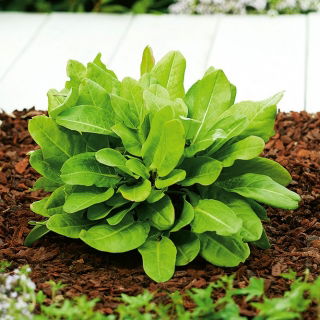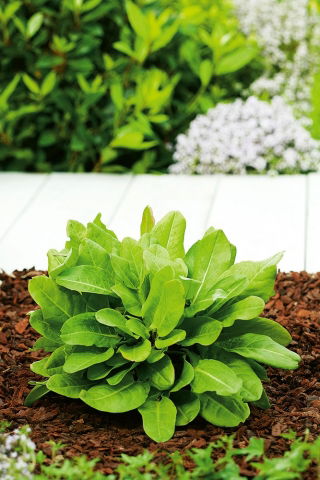- US Dollars ($)
- Euro (€)
- GB Pound (£)
- Chinese Yuan (元)
- Swedish krona (kr)
- Russian ruble (₽)
- Hong Kong dollar (HK$)
- Norwegian krone (kr)
- Indian rupee (₹)
- New Taiwan dollar (NT$)
- Danish krone (kr)
- Hungarian forint (Ft)
- Saudi riyal (SR)
- Bulgarian lev (лв)
- Czech koruna (Kč)
- Israeli shekel (₪)
- Indonesian rupiah (Rp)
- Japanese yen (¥)
- Korean won (₩)
- Malaysian ringgit (RM)
- Romanian leu (leu)
- Swiss franc (Fr.)
- Serbian dinar (din)
- Vietnamese đồng (₫)
- Ukrainian hryvnia (₴)
- Turkish lira (₺)
- Thai baht (฿)
- CAD Dollars ($)
- English
- German - Deutsch
- French - Français
- Spanish - Español
- Italian - Italiano
- Swedish - Svenska
- Norwegian - Norsk
- Danish - Dansk
- Nederlands
- Estonian - Eesti keel
- Finnish - Suomalainen
- Hungarian - Magyar
- Latvian - Latviešu valoda
- Lithuanian - Lietuvių
- Portuguese - Português
- Bulgarian - български
- Czech - Čeština
- Croatian - Hrvatski
- Romanian - Română
- Slovak - Slovák
- Slovenian - Slovenščina
- Categories
-
Seeds
-
Vegetable Seeds
-
Flower Seeds
-
- Ageratum, Flossflower seeds
- Alyssum seeds
- Amaranth Seeds
- Aquilegia, Columbine seeds
- Aster seeds
- Aubrieta Seeds
- Begonia seeds
- Bellis perennis, Daisy seeds
- Californian Poppy Seeds
- Campanula, Bellflower seeds
- Celosia, Cocksbomb seeds
- Centaurea, Cornflower seeds
- Chrysanthemum, Painted Daisy seeds
- Coleus seeds
- Convolvulus seeds
- Coreopsis seeds
- Cosmos seeds
-
- Datura seeds
- Dianthus, Carnation seeds
- Echinacea, Coneflower seeds
- Flower seed mixtures
- Forget me not seeds
- Foxglove seeds
- Gaillardia Seeds
- Gazania seeds
- Geranium, Pelargonium seeds
- Godetia seeds
- Gourd, Ornamental squash seeds
- Gypsophila, Baby's Breath seeds
- Hollyhock seeds
- Impatiens seeds
- Ipomoea, Morning glory seeds
- Calabash, Bottle Gourd seeds
- Larkspur, Delphinium seeds
-
- Limonium, Statice seeds
- Lobelia seeds
- Lupin, Lupine seeds
- Lychnis, Catchfly seeds
- Mallow Seeds
- Marigold, Tagetes seeds
- Milkweed Seeds
- Nasturtium seeds
- Nemesia seeds
- Nepeta, catmint seeds
- Nicotiana, Ornamental Tobacco seeds
- Nigella, Love in a mist seeds
- Pansy seeds
- Petunia and Surfinia seeds
- Phlox seeds
- Poppy seeds
- Primula, Primrose seeds
-
- Red Valerian, Centranthus Seeds
- Ricinus, Castor bean seeds
- Runner bean seeds
- Safflower seeds
- Salvia, Ornamental sage seeds
- Snapdragon Seeds
- Stock seeds
- Strawflower, Golden everlasting seeds
- Sunflower seeds
- Sweet pea seeds
- Tunbergia, Black-eyed Susan Vine seeds
- Verbascum, Mullein seeds
- Verbena seeds
- Veronica, Speedwell seeds
- Viola, Violet seeds
- Zinnia seeds
-
- Herb Seeds
- Sprouting Seeds
-
Flower Bulbs
-
Garden Equipment
-
At home
- Around home
-
Fertilizers
-
- All-purpose fertilizers
- Autumn and winter fertilizers
- Blueberry fertilizers
- Boxwood fertilizers
- Bulb plants' fertilizers
- Grass and lawn fertilizers
- Citrus plant fertilizers
- Compost
- Conifer fertilizers
- Dolomite and lime fertilizers
- Dry powder fertilizers
- Fertilizers for balcony and terrace plants
- Fertilizers for moss-infected lawns
- Fertilizers in pump sprayers
-
- Fertilizers in watering cans
- Fertilizers sticks
- Fertilizers with leaf shine
- Flowering plant fertilizers
- Fruit fertilizers
- Fruit tree fertilizers
- Garden plant fertilizers
- Gel fertilizers
- Geranium fertilizers
- Green plant fertilizers
- Herb fertilizers
- Home plant fertilizers
- Hydrangea fertilizers
- Lavender fertilizers
-
Garden sorrel, esteemed for its refreshing, tangy flavour, is an exceptional plant that will undoubtedly enhance any garden. It forms dense rosettes composed of elongated leaves, which can serve as an excellent substitute for spinach. Sorrel is a rich source of iron and vitamins, making it a valuable addition to soups, salads, and omelettes. Thanks to its perennial nature, it provides a steady supply of fresh leaves over a long period. At Garden Seeds Market, premium seeds are available, having undergone rigorous quality tests to ensure high germination rates and healthy plant growth. Positive customer feedback and fast delivery are additional advantages of purchasing from our store.
Sowing
Garden sorrel is best sown directly into the ground. The plant prefers locations where the soil is moist yet well-drained. It is advisable to prepare the soil adequately to provide the seeds with optimal conditions for development.
Sowing Depth
Garden sorrel seeds should be placed at a depth of approximately 1 cm, ensuring they have proper access to moisture and nutrients. This depth also helps protect them from drying out and adverse weather conditions.
Direct Sowing Period
When should you sow garden sorrel seeds directly into the ground? The best time for sowing is in spring and late summer, allowing for fresh leaves from April to June, and then again from August to October.
Plant Spacing
The optimal spacing for sorrel is 30 cm between rows and 15-20 cm between plants within a row. This arrangement allows for the free development of plants and facilitates maintenance and potential harvesting.
Site Conditions
Garden sorrel prefers sunny or partially shaded locations, where the soil is fertile and moist. The plant thrives in substrates with a neutral pH but also tolerates slightly acidic soils. Regular watering during dry spells ensures lush growth and abundant yields.
Growing Tips
Growing garden sorrel is exceptionally straightforward. The plant is low-maintenance, but regular organic fertilisation can support its development. Removing spent flower stalks allows for prolonged leaf production. Additionally, sorrel is resistant to low temperatures, making it an ideal choice for perennial cultivation.
Usage
Garden sorrel is perfect for enhancing a variety of dishes with its unique flavour and aroma. It pairs excellently in soups and chilled soups, adding a tangy note. The leaves can be added to salads, omelettes, or as an accompaniment to meat dishes. Thanks to its properties, sorrel is also a popular ingredient in healthful cocktails and smoothies.
Why Buy from Garden Seeds Market
Purchasing garden sorrel seeds from Garden Seeds Market guarantees top quality and satisfaction. Our seeds come from reputable cultivations, and their quality is confirmed by numerous laboratory tests. We ensure that every product delivered to the customer meets the highest standards. With fast and secure delivery, the seeds will reach you in perfect condition, ready for sowing. The positive feedback from satisfied customers and our extensive experience in the gardening industry are the best recommendations for our store.
The package contains 100 g of seeds. The packaging includes information on cultivation guidelines and the best before date for sowing.
New


My account
Store
Customer information
Information

© -2025 Gardenseedsmarket.




